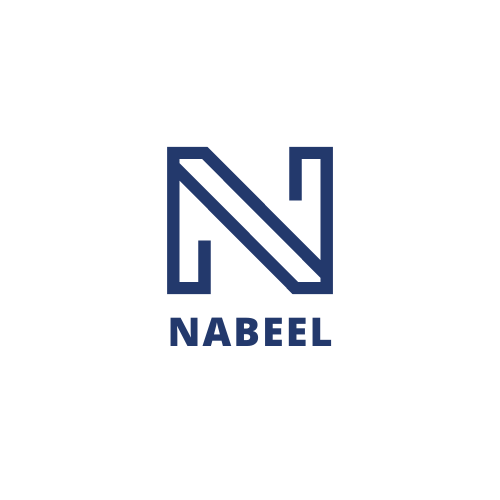Exploring Alternatives to Evernote in 2025: Notion vs OneNote
In the fast-paced digital world of 2025, staying organized is more crucial than ever. While Evernote has long been a popular choice for note-taking and organization, many users are exploring other options that might better suit their evolving needs. In this post, we’ll delve into two of the most compelling alternatives to Evernote: Notion and Microsoft OneNote. Whether you’re a student, a professional, or simply someone who loves staying organized, this guide will help you decide which app is the best fit for you.
Table of Contents
1. Introduction
2. What Makes Notion Stand Out?
3. Why Choose OneNote?
4. Key Differences Between Notion and OneNote
5. User Experience and Interface
6. Pricing and Accessibility
7. Conclusion
8. FAQs
What Makes Notion Stand Out?
Notion has rapidly gained popularity due to its versatility and customization capabilities. It’s more than just a note-taking app; it’s a comprehensive tool that allows users to create databases, manage projects, and even build personal wikis. Here are some features that set Notion apart:
All-in-One Workspace: Notion combines notes, tasks, databases, and calendars into one seamless interface. This makes it an attractive option for users who prefer having all their information in one place.
Customizability: Users can create templates and modify the layout to suit their specific needs. Whether you’re managing a team project or planning a personal trip, Notion can be tailored to fit your workflow.
Integration Capabilities: With integrations for tools like Slack, Google Calendar, and Trello, Notion ensures that your workflows remain uninterrupted and cohesive.
Why Choose OneNote?
Microsoft OneNote, part of the Office suite, continues to be a powerhouse for note-taking, especially for those deeply embedded in the Microsoft ecosystem. Here’s why you might consider OneNote:
Familiar Interface: If you’re accustomed to Microsoft Office products, OneNote’s interface will feel intuitive and easy to navigate. The ribbon, similar to other Office apps, provides a seamless transition.
Handwriting Recognition: OneNote shines with its ability to convert hand-written notes to text, making it ideal for stylus users and those who prefer writing over typing.
Robust Organization: With hierarchical organization structures, such as notebooks, sections, and pages, OneNote makes it simple to keep your notes well-ordered.
Key Differences Between Notion and OneNote
While both apps offer excellent features, they cater to slightly different needs. Here are some of the critical differences:
Functionality: Notion offers more extensive project management features, while OneNote excels in straightforward note-taking and integration with other Microsoft apps.
Learning Curve: Notion has a steeper learning curve, especially for users unfamiliar with databases and templates. In contrast, OneNote is relatively easy to pick up, thanks to its similarity to other Microsoft products.
Collaboration Tools: Notion offers better collaboration features, allowing multiple users to work on the same database or note simultaneously. OneNote’s collaboration is limited to sharing and viewing, with less emphasis on real-time teamwork.
User Experience and Interface
Both Notion and OneNote offer unique user experiences tailored to different user preferences:
Notion: The clean, minimalistic design of Notion appeals to those who prefer a clutter-free workspace. Its drag-and-drop interface makes organizing information intuitive, though it may initially overwhelm new users.
OneNote: With a more traditional interface, OneNote feels familiar to those who have used Microsoft Office products. Its visual hierarchy makes navigating through notes simple and efficient.
Pricing and Accessibility
Cost is always a consideration, especially for users on a budget:
Notion: Offers a free version with basic features, while the premium version provides advanced capabilities and integrations for a monthly fee.
OneNote: Free to use, with additional features unlocked through an Office 365 subscription, making it a cost-effective choice for those already using Microsoft Office.
Conclusion
Choosing between Notion and OneNote in 2025 depends largely on your specific needs and preferences. If you require a versatile, all-in-one tool with robust project management features, Notion is likely the better choice. On the other hand, if you prioritize ease of use, handwriting capabilities, and integration with Microsoft Office, OneNote might be the way to go. Regardless of your choice, both apps offer powerful features that can enhance your productivity and organization.
FAQs
Q: Can I use Notion offline?
A: Yes, Notion offers an offline mode, but some features may be limited without an internet connection.
Q: Does OneNote support handwriting on all devices?
A: Handwriting features are available on devices that support stylus input, such as tablets and touch-screen laptops.
Q: Are there any alternatives to Notion and OneNote?
A: Yes, other popular alternatives include Google Keep, Bear, and Trello, each catering to different organizational needs.
🌟 Whether you’re a seasoned note-taker or a productivity newbie, both Notion and OneNote offer valuable tools to help you navigate the demands of 2025 with ease.



